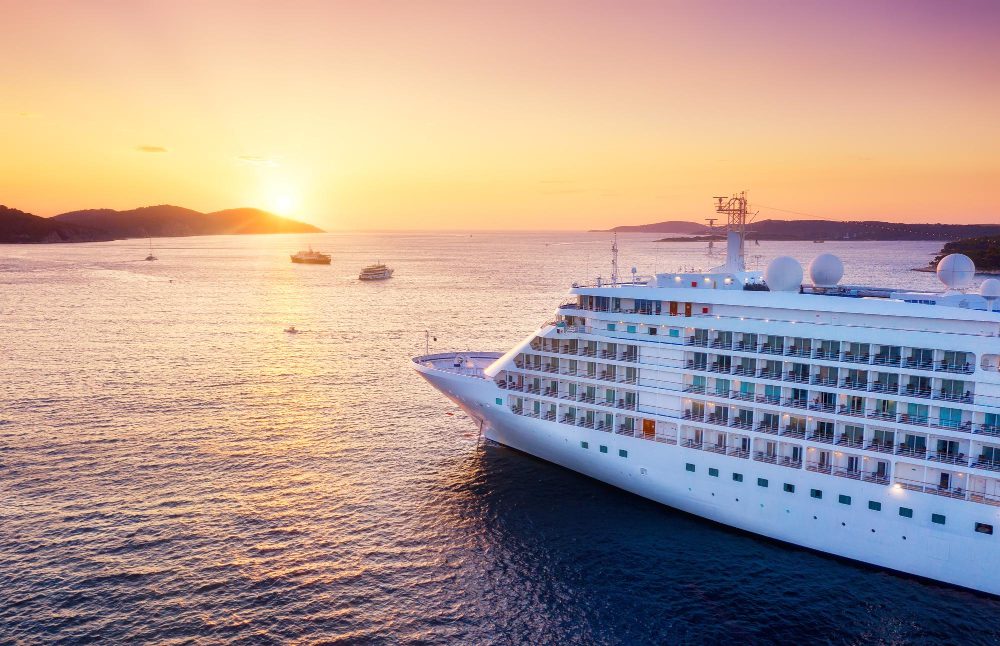Do Gen Z like cruises?
Introduction
Cruises have long been a popular vacation choice for people of all ages. From baby boomers to millennials, many individuals have enjoyed the unique experience of sailing on a luxurious ship and exploring different ports of call. However, there has been speculation as to whether Generation Z, the demographic cohort born between the mid-1990s and early 2010s, shares the same enthusiasm for cruises as their predecessors. In this article, we will delve into the preferences and attitudes of Gen Z towards cruises and explore whether they are embracing this age-old vacation option.
The Appeal of Cruises to Gen Z
Contrary to some beliefs, Gen Z does show an inclination towards cruises. Despite growing up in a digital age where instant gratification is highly valued, these young adults appreciate the sense of adventure and escapism that cruises offer. The opportunity to visit multiple destinations without the hassle of constant travel arrangements appeals to Gen Z’s desire for convenience.
Moreover, Gen Z values experiences over material possessions, making cruises an appealing choice for their generation. They seek out unique and memorable experiences that allow them to connect with different cultures and people. Cruises provide an all-in-one package, offering a myriad of entertainment options, activities, and shore excursions that cater to the interests and preferences of this diverse generation.
“As a Gen Z traveler, I view cruises as an exciting way to explore new places and meet like-minded individuals. The variety of onboard amenities and the chance to experience different cultures are what make cruises an attractive vacation choice for me.” – Sarah, a 22-year-old Gen Z traveler
Onboard Entertainment and Amenities
One of the reasons why cruises continue to appeal to Gen Z is the abundance of onboard entertainment and amenities. Cruise ships are like floating cities, equipped with state-of-the-art theaters, water parks, fitness centers, and even virtual reality gaming zones. These modern facilities cater to the tech-savvy nature of Gen Z, providing them with a wide range of activities to enjoy during their cruise vacation.
In addition, cruises also offer a unique social environment that resonates with Gen Z. The opportunity to meet other young travelers from around the world, participate in onboard parties and events, and build connections is a significant draw for this generation. Cruises provide a social setting that facilitates interaction, creating friendships and memories that can last a lifetime.
Environmental Concerns and Ethical Considerations
While Gen Z does find cruises appealing, it is essential to acknowledge their growing concern for environmental issues. This generation places a strong emphasis on sustainability and ethical travel choices. The environmental impact of cruises, including issues such as air pollution and waste management, has become a topic of concern.
Cruise companies have recognized the importance of sustainability and are taking steps to address these concerns. Many have implemented initiatives to reduce their environmental footprint, such as investing in cleaner technologies, recycling programs, and partnering with local communities to support environmental preservation efforts. These efforts to mitigate the negative impact of cruising align with Gen Z’s values and may contribute to their willingness to consider cruises as a vacation option.
What age group cruises most?
Cruising has become an increasingly popular vacation choice for people of all ages. With a wide variety of activities and amenities available on modern cruise ships, there is something to appeal to everyone. However, certain age groups tend to gravitate towards cruising more than others. Let’s take a closer look at which age group cruises most.
1. Baby Boomers
The baby boomer generation, typically defined as individuals born between 1946 and 1964, represents a significant portion of the cruising demographic. As this generation approaches retirement age, many are seeking new and exciting travel experiences. Cruises offer a convenient way for baby boomers to explore different destinations while enjoying all-inclusive amenities and organized excursions.
2. Generation X
Generation X, born between 1965 and 1980, is another age group that frequently chooses cruising as their vacation option. With careers and families to balance, Gen Xers appreciate the convenience and flexibility of cruises. They can spend quality time with their loved ones, indulge in various onboard activities, and explore multiple destinations without the hassle of planning individual trips.
3. Millennials
The millennial generation, born between 1981 and 1996, may initially seem more inclined towards alternative travel options such as backpacking or adventure holidays. However, millennials are also embracing cruising as a way to relax and unwind. Many cruise lines now cater to this age group by offering more youthful and dynamic onboard experiences, including themed parties, innovative dining options, and social media-friendly amenities.
4. Generation Z
Although still relatively young, the emerging Generation Z, born after 1997, is starting to make its mark in the cruising industry. As this generation enters adulthood, cruise lines are adapting to their preferences for technology, connectivity, and unique experiences. Gen Z travelers value socially and environmentally responsible travel options, making cruises with sustainable practices an appealing choice.
In conclusion, while cruises appeal to a wide range of age groups, baby boomers, Generation X, millennials, and Generation Z are often observed as the age groups who cruise most. Each demographic has its own reasons for choosing cruising as their preferred vacation option, whether it be the convenience and all-inclusive nature or the abundance of onboard activities and destinations to explore. Regardless of age, cruises offer something for everyone, making them an increasingly popular choice for travelers worldwide.
What is the Average Age of Cruise Customers?
Introduction
Cruises have become a popular vacation choice for people of all ages. However, there is often a perception that cruises are mainly for older adults. In this article, we will explore the average age of cruise customers and debunk some common misconceptions.
The Changing Demographics
In the past, cruises used to be primarily popular among older adults seeking a relaxing escape. However, in recent years, the demographics of cruise customers have shifted significantly. The cruise industry has been actively targeting younger travelers and families, offering a wide range of activities and entertainment options that appeal to a broader audience.
Statistics and Data
According to recent industry reports, the average age of cruise passengers has been steadily decreasing. While the exact numbers may vary between cruise lines and regions, the general trend is clear. Many cruise ships now have dedicated areas and amenities specifically designed for families and younger travelers.
A survey conducted by a leading cruise line revealed that the average age of their passengers is now in the mid-40s. This indicates that a significant portion of cruise customers falls within the middle-aged bracket.
The Appeal to Different Age Groups
One reason behind the increasing popularity among younger travelers is the wide range of activities and entertainment options available on modern cruise ships. From water parks and sports facilities to live music performances and culinary experiences, there is something for everyone.
Quotes:
“Cruises offer a unique combination of relaxation, luxury, and adventure that appeals to travelers of all ages.” – Cruise Expert
Why is Gen Z more inclusive?
Generations are often defined by the unique characteristics and values they possess. As we transition from Millennials to Generation Z, one remarkable trait that stands out is their inclusivity. Gen Z is known for its strong emphasis on diversity and acceptance. Let’s explore some key reasons why this generation is more inclusive than ever.
1. Diversity is the new norm
One significant reason for Gen Z’s inclusivity is their exposure to diversity from an early age. Growing up in a globalized world with access to the internet, they have been exposed to different cultures, ethnicities, religions, and lifestyles. This exposure has fostered a mindset of acceptance and respect for diversity.
2. Social media as a catalyst for change
The rise of social media platforms has given voice to marginalized communities and raised awareness about social injustices. Gen Z utilizes these platforms to amplify diverse voices, challenge stereotypes, and advocate for change. Their online activism has made a significant impact on fostering inclusivity.
3. Embracing individuality
Unlike previous generations, Gen Z celebrates individuality and uniqueness. They reject societal norms that dictate how one should look, behave, or identify themselves. This acceptance of individual differences naturally extends to accepting and embracing diversity in all its forms.
4. Education and exposure
Gen Z places a strong emphasis on education and staying informed. They actively seek out knowledge about different cultures, histories, and social issues. This thirst for knowledge helps break down barriers and biases, fostering a more inclusive mindset.
5. Importance of representation
Gen Z recognizes the significance of representation in media, politics, and various industries. They demand diverse representation and challenge any lack thereof. By pushing for better representation, they contribute to creating a more inclusive society where everyone feels seen and heard.
6. Open-mindedness and empathy
Gen Z has shown a remarkable ability to approach differing opinions and perspectives with open-mindedness and empathy. They are willing to have difficult conversations, listen to others’ experiences, and learn from them. This empathetic attitude helps bridge gaps and build more inclusive communities.
7. Tech-savvy and interconnected
Being the first fully digital native generation, Gen Z is tech-savvy and interconnected like no other. This interconnectedness has allowed them to connect with diverse individuals globally, breaking down geographical barriers and fostering cultural understanding.
8. Fearless and vocal
Gen Z is not afraid to challenge the status quo and speak up against injustice. They have witnessed the power of collective action and understand that their voices matter. This fearlessness has contributed to pushing for change and fostering inclusivity.
9. Focus on social equality
Gen Z perceives social equality as a fundamental right. They believe in equal opportunities for all irrespective of race, gender, sexual orientation, or socioeconomic background. Their focus on social equality helps drive inclusivity and advocate for marginalized communities.
10. Future-oriented mindset
Lastly, Gen Z’s future-oriented mindset drives their commitment to inclusivity. They recognize that a more inclusive society benefits everyone and paves the way for a better future. Their dedication to inclusivity ensures that progress continues beyond their own generation.
In conclusion, Gen Z’s inclusivity is driven by factors such as exposure to diversity, social media activism, embracing individuality, education, representation, open-mindedness, interconnectedness, fearlessness, focus on social equality, and a future-oriented mindset. Their inclusive nature has the potential to foster a more accepting and diverse society, creating positive change for generations to come.
Why Don’t Many Americans Work on Cruise Ships?
Americans love to travel, so it may come as a surprise that not many of them choose to work on cruise ships. While working on a cruise ship can be an exciting and unique experience, there are several reasons why many Americans opt not to pursue this career path.
1. Lack of Awareness
One of the main reasons why many Americans don’t work on cruise ships is simply because they are not aware of the opportunities available. Unlike countries such as the Philippines and India, where working on cruise ships is widely advertised and seen as a viable career option, the same level of awareness does not exist in the United States.
2. Strict Employment Requirements
Working on a cruise ship requires individuals to meet certain employment requirements. These requirements often include specific certifications, licenses, and visas. Meeting these requirements can be challenging and time-consuming for many Americans, making it less enticing to pursue a job on a cruise ship.
3. Competitive Job Market
The job market on cruise ships is highly competitive. Cruise lines often receive a large number of applications from around the world, including countries where wages may be lower. This competition makes it more difficult for Americans to secure employment on cruise ships.
4. Cultural Differences
Working on a cruise ship means being part of a multicultural environment. While this can be an enriching experience, it may also pose challenges for Americans who are not accustomed to working with people from different backgrounds and cultures.
5. Limited Job Opportunities
While there are various job opportunities available on cruise ships, Americans might find that their desired positions are limited or already filled. Certain roles, such as cruise directors or entertainers, may be more sought after and require specific skills and experience.
6. Family and Personal Obligations
Many Americans prioritize family and personal obligations, which may make it difficult for them to commit to the lifestyle of working on a cruise ship. The long hours, extended periods away from home, and limited time for personal relationships can deter individuals from pursuing this career path.
7. Salary and Benefits Considerations
While some positions on cruise ships offer competitive salaries, others may not be as financially rewarding. Americans tend to have higher salary expectations and may find that the compensation offered for certain roles on cruise ships does not meet their standards.
8. Job Insecurity
Working on a cruise ship can be insecure, especially during times of economic instability or global crises, such as the COVID-19 pandemic. The uncertainty of having a stable job and the potential for layoffs or extended periods without work can discourage Americans from pursuing this career option.
In conclusion, although working on a cruise ship can be an exciting and adventurous opportunity, there are several factors that contribute to why many Americans don’t choose it as a career path. From the lack of awareness and strict employment requirements to the competitive job market and cultural differences, Americans have various reasons for not pursuing work on cruise ships. It’s important to consider these factors before deciding to embark on a career at sea.
Why do so many Asians work on cruises?
Economic Factors
One of the key reasons why many Asians choose to work on cruises is due to economic factors. For individuals living in countries with lower wages and limited employment opportunities, working on a cruise ship can provide a chance to earn a higher income. The salary, tips, and other benefits offered by cruise ship companies are often more attractive than what they can find locally.
Cultural Norms and Work Ethic
Asian cultures often place a strong emphasis on hard work, discipline, and dedication. These cultural norms, combined with a strong work ethic, make Asians sought after employees in the cruise industry. Cruise ship companies value the reliability, professionalism, and attention to detail that many Asians bring to their work.
Language Skills
Given the international nature of the cruise industry, fluency in multiple languages is highly valued. Asians, particularly those from countries such as China, Japan, and South Korea, often possess language skills that cater to the diverse needs of cruise ship passengers. Their ability to communicate with both English-speaking guests and non-English speaking travelers make them valuable assets to cruise companies.
Hospitality and Service-Oriented Culture
Asian cultures traditionally have a strong emphasis on hospitality and service-oriented practices. This cultural background makes Asians well-suited for the customer service roles prevalent in the cruise industry. From cabin stewards to waitstaff, Asians excel in providing personalized and attentive service to passengers, enhancing the overall cruise experience.
Networking Opportunities
Cruise ship jobs provide excellent networking opportunities for Asian individuals looking to pursue careers in the travel and hospitality industries. Working on a cruise ship allows them to gain exposure to different cultures, build connections with professionals from all over the world, and expand their career prospects beyond the cruise industry itself.
Challenges Faced by Asians
While there are several advantages to working on a cruise ship as an Asian, there are also challenges that they may encounter. Language barriers, cultural differences, and homesickness can pose difficulties for those transitioning to life onboard. However, with proper training, support, and a positive mindset, these challenges can be overcome.
“Working on a cruise ship can be a transformative experience for Asians, providing an opportunity to explore the world, develop valuable skills, and pave the way for future career growth.”
Conclusion
While there may still be a perception that cruise customers are predominantly older adults, the reality is quite different. The average age of cruise customers has been on a decline in recent years, thanks to the industry’s efforts to cater to a wider audience. Whether you’re in your 20s, 40s, or beyond, a cruise vacation can offer a rewarding experience for everyone.
Asians working on cruises benefit from economic factors, cultural norms, language skills, hospitality practices, and networking opportunities. While there are challenges, the rewards of working on a cruise ship are often worth it. The cruise industry offers unique opportunities for personal and professional growth, making it an attractive career choice for many Asians.


